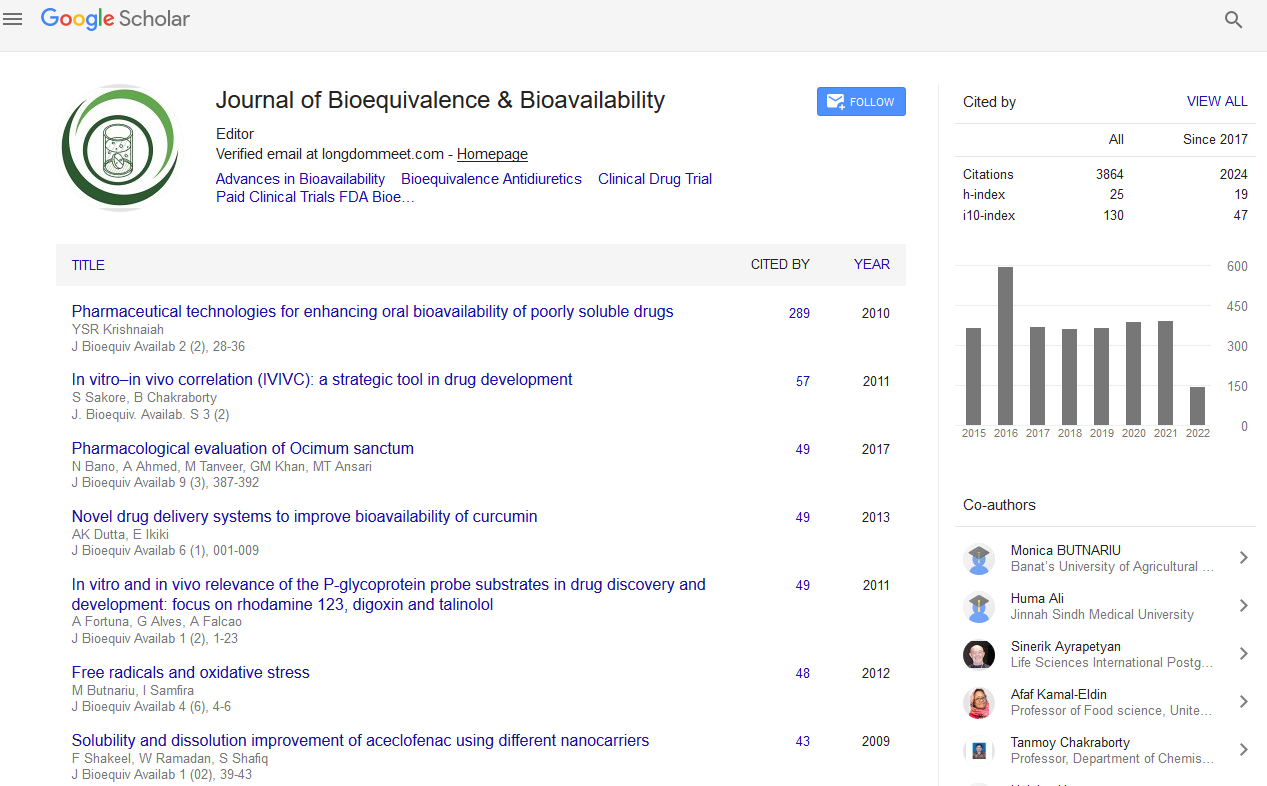PMC/PubMed Indexed Articles
Indexed In
- Academic Journals Database
- Open J Gate
- Genamics JournalSeek
- Academic Keys
- JournalTOCs
- China National Knowledge Infrastructure (CNKI)
- CiteFactor
- Scimago
- Ulrich's Periodicals Directory
- Electronic Journals Library
- RefSeek
- Hamdard University
- EBSCO A-Z
- OCLC- WorldCat
- SWB online catalog
- Virtual Library of Biology (vifabio)
- Publons
- MIAR
- University Grants Commission
- Geneva Foundation for Medical Education and Research
- Euro Pub
- Google Scholar
Useful Links
Share This Page
Journal Flyer

Open Access Journals
- Agri and Aquaculture
- Biochemistry
- Bioinformatics & Systems Biology
- Business & Management
- Chemistry
- Clinical Sciences
- Engineering
- Food & Nutrition
- General Science
- Genetics & Molecular Biology
- Immunology & Microbiology
- Medical Sciences
- Neuroscience & Psychology
- Nursing & Health Care
- Pharmaceutical Sciences
Abstract
Assessment of Bioavailability of Rifampicin as a Component of Anti-tubercular Fixed Dose Combination Drugs Marketed in Pakistan.
Shahzad Hussain, Farnaz Malik, Wajahat Mehmood, Abdul Hameed, Humanyun Riaz and Muhammad Rizwan
The World Health Organization (WHO) recommended DOTS program recommends treatment of TB with a combination of three to fi ve drugs. However, international bodies like the WHO and IUTLD (international union against tuberculosis and ling disease) recommend the use of only those fi xed dose combinations that have proven in vivo bioavailability. The present study was conducted to test the in vivo bioavailability of some of the formulations currently marketed in Pakistan on twenty six healthy volunteers as a three sequence, three period cross-over study. Rifampicin was administered in three different formulations out of which one (Formulation A) acted as a standard against which the other two formulations; Formulation B (Fixed dose combination without pyrazinamide) and formulation C (Fixed dose combination with pyrazinamide) were tested. Thirteen blood samples including a pre-dose sample were drawn over a period of 24 hours. Plasma samples were analyzed for rifampicin concentration by an HPLC method and critical pharmacokinetic parameters were calculated. Although, based on the con fi dence intervals for the ratios of geometric means of pharmacokinetic parameters none of the test formulations B or C could be declared bioequivalent, nevertheless effective formulations for the treatment of TB in Pakistan.


